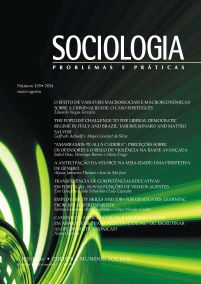Transfer of educational competences in Portugal: new roles for old players
DOI:
https://doi.org/10.7458/SPP202410531289Keywords:
decentralization, local educational policies, competenciesAbstract
Now that the transfer of educational competences to the municipalities has become compulsory, it is important to analyse whether there are differences between those who agreed to take part in the pilot projects that have been implemented for several years, thus gaining experience, and those who refused this process until it became compulsory in 2019. Does this experience help us understand the different positions of local players? To answer this question, we mobilised the information gathered as part of a project to draw up educational charters covering one district in the country, using a mixed methodology with the aim of contributing to reflection on this process. As well as noting the emergence of the CIM (intercity communities) as a strategic agent for regional educational planning, which adds complexity to the process, it was possible to observe that among the municipalities with previous experience in the process of transferring competences, there is a greater propensity to view the local government as the promoter of a municipal strategy without major problems, while in the other municipalities the idea that it can only be a partner for the schools stands out.
Downloads
Published
Issue
Section
License
Authors who publish in this Journal must agree the following terms and conditions:
- Authors retain copyright and grant the Journal the right to first publication, while simultaneously agreeing to a Creative Commons Attribution License, which allows others to share their work on condition that they cite the original author(s) and recognise that the latter’s work was first published in this Journal.
- Authors are authorised to enter into additional contracts separately, for non-exclusive distribution of the version of the work that is published in this Journal (e.g. publication in an institutional repository or as a book chapter), subject to recognition of initial publication in this Journal.



